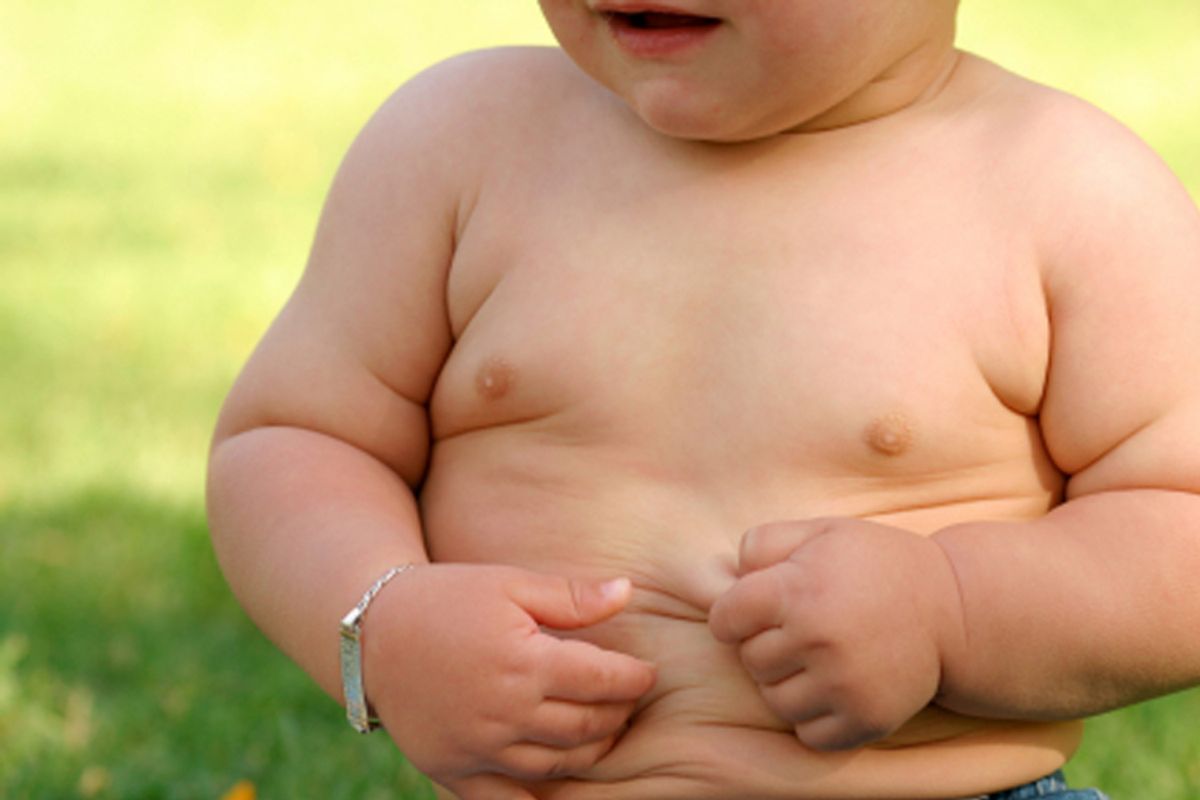A version of this post first appeared on Dr. Ayala's Open Salon blog.
It wasn't that long ago when I had newborns -- they're now a tween and teens -- and the unspoken competition between new moms was how well our babies gain weight, how high they plot on the percentile charts and how quickly they outgrow their clothes. Chubby was cute, and -- it's embarrassing to say -- many breastfeeding moms were encouraged by medical personnel to add on some formula if the baby wasn't gaining weight at a remarkable pace.
I was already a pediatrician when I had my first son. I knew better, yet I was still in tears -- like many new moms I found tears weren't hard to come by -- when a well-meaning nurse suggested I might not have enough breast milk, as my baby was on the 25th percentile, and hadn't gained much weight in the previous week. I didn't heed her advice to add formula; I knew that a happy, content baby, who is growing at his own pace, probably needs nothing.
Someone needs to be on the 25th percentile; someone needs to be on the 10th. Kids and babies come in many sizes, and variation in size is as normal as variation in hair color. We can't all be above average. But then again, maybe the obesity epidemic is proving me wrong.
Studies have shown that the path to obesity starts very early on, perhaps even before birth. Gaining too much weight in pregnancy doesn't only affect mom's long-term weight -- it may also increase a kid's obesity risk later in life. And we know all too well that extra weight in childhood persists all too often into adulthood. Of course, carrying significant extra weight has serious health implications, and is a risk factor in many chronic diseases -- including heart disease and type-2-diabetes -- and shortens lifespan.
While it's now a fact that a third of American kids are overweight or obese, it's especially notable that a recent study in Clinical Pediatrics suggests that the tipping point in obesity occurs before the second birthday, and excessive weight gain may start in babies as young as three-months-old.
If that's the case, interventions aimed at preventing childhood obesity should start well before kids start preschool. But where should we focus our efforts? Which early life factors affect weight gain the most?
Eight early-life risk factors may determine later obesity:
Obesity Reviews recently detailed a study that systematically reviewed the medical literature, looking for early-life factors that affect obesity. From more than 12,000 publications, the authors found 22 review studies that that met their standards, and they found several recurring themes:
Maternal factors
• Maternal diabetes
• Maternal smoking
Infant factors
• Rapid infant growth
• No or short breastfeeding
• Obesity in infancy
• Short sleep duration
• Less than 30 minutes of daily physical activity
• Consumption of sugar-sweetened beverages
Other factors identified as potentially associated with later development of obesity include parental obesity, very high or very low birth weight, TV viewing, food insecurity and low socioeconomic status.
These studies of course do not prove that these factors cause obesity. The associations are hard to disentangle, and many of these risk factors seem to cluster with lower socio-economic status, where smoking, parental obesity, diabetes, unhealthy foods and beverages and a sedentary lifestyle are more prevalent and exclusive breastfeeding less practiced.
Much more work will need to be done before we can say for sure which habits clearly lead to obesity. While it seems that each one on their own increases the risk only by a bit, I think it's safe to say that some of our age-old notions -- that pregnant women should eat for two, that a fat baby is a healthy baby, and that the more (baby-food) the better -- were quite clearly misguided.
Nevertheless, none of the obesity-associated risk factors are controversial, or assumptions we're likely to later regret. Breastfeeding is the first component of healthy nutrition and has a long list of advantages -- to both mommies and babies -- and should be encouraged and assisted as much as possible for a multitude of reasons.
As for sleep, all parents I suppose cherish their kids' sleep. There is indeed good reason why we adore sleeping babies. Sleep is as important as food, drink and safety for kids' wellbeing.
Sleep's central importance wasn't something I heard much of in my medical training. I guess telling people who are going to be on call (i.e., awake) every third or fourth night for many years that lack of sleep undermines good physical and mental health would worsen the physician shortage. Sleep's many secrets are yet to be revealed -- we still know too little about how to solve insomnia -- but helping babies and kids develop good sleeping habits not only takes care of their health and well being; it also gives parents some alone-time and an opportunity to regroup. And to sleep. And that is priceless!



Shares